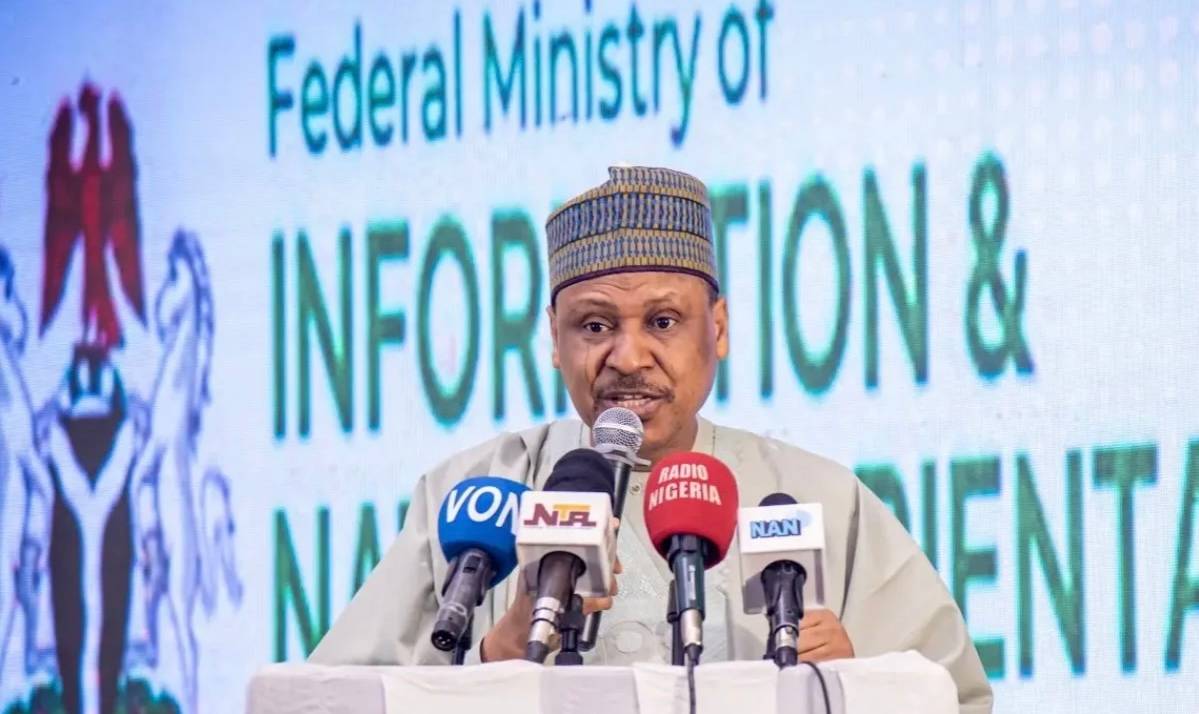By Segun Ayobolu
The radical political economist, Professor Claude Ake, wryly noted in his classic, ‘The Political Economy of Africa’ that “It is true that man cannot live on bread alone. But it is a more fundamental truth that man cannot live without bread”. Although Ake was taking a subtle dig at the Lord Jesus Christ’s contention that man needs spiritual nourishing as much as material sustenance, the truth is that implicit in Christ’s cryptic assertion is the realization of the vitality of food to human existence. Such is the degree of hunger in the country today largely as a result of the soaring prices of food items beyond the rich of the vast majority of Nigerians that a special report in the Vanguard Newspaper yesterday that many families are being forced to resort to desperate, unhygienic and dangerous means of feeding themselves with negative consequences for their physical, psychological and mental well-being.
The insufficiency and unaffordability of food can constitute a huge security risk in a fragile democracy like ours where elements of the opposition are all too eager to exploit all means to discredit not just the government in power for which they harbour visceral hatred but also delegitimize democracy and destabilize the polity. For instance, the Tinubu administration’s implacable adversaries attribute the unfortunate deaths as a result of stampedes for food palliatives in some parts of the country during the last festive period to the degree of poverty created by the government’s policies while others derisively refer to the queues in front of the President’s Bourdillon residence in Ikoyi, last December waiting to collect Christmas and end of year handouts as indicative of the negative implications of his policies.
Yet, this had been the practice during festive periods since the inception of this dispensation in 1999 long before Tinubu became President. Indeed, I recall that in the 1970s in the GRA area of Ilorin along Police Road where the late Senator Olusola Saraki had his residence at the time, large crowds always gathered at his house both at festive and other periods to benefit from his generosity. I am sure that this practice has been replicated across the country over time and has as much to do with our cultural orientation as a people as with the unacceptable degree of material deprivation and inequality in our society.
In the same vein, rushing for food or other items as well as our penchant for poor organization during social, political and other activities involving large gatherings of people has been well known and has routinely resulted in avoidable mishaps, sometimes tragic, long before now. Even then, the government in power particularly at the centre will sound like giving untenable excuses if it resorts to offering such explanations. Rather, it should utilize the immense powers of the state to mobilize the people to produce food in abundance and allow the interplay of the forces of demand and supply to substantially force down prices when there is a superfluity of food available. The truth of the matter is that given the munificence of fertile land and Favourable climate in large swathes of the country, there is no excuse for our inability to feed our population or the continued high level of food imports in Nigeria.
True, the administration has made large allocations of funds available to the state governments in several tranches since the removal of the fuel subsidy. As at the first half of 2024, for instance, it was estimated that no less than N570 billion was released by the federal government to the 36 states to expand livelihood support to their citizens in addition to the direct distribution of food items and cash disbursement to the vulnerable by the central government. While a few of the states have performed creditably in making food and other palliatives available to large numbers of their people, most of the sub-national units of government have been adjudged as being ineffective and making a negligible impact in this regard. In any case, the distribution of palliatives is too susceptible to corruption and diversion and can, even in the best of circumstances, reach only a limited number of people to be a sustainable policy is all too obvious now.
There is thus no alternative to taking necessary measures by all levels of government but especially the sub-national units to dramatically ramp up food productivity to bring down food inflation considerably thereby mitigating current poverty levels. Here again, the Tinubu administration cannot be credibly accused of not making desirable and well-meaning efforts towards achieving this objective. For instance, during the week, the Minister of Agriculture and Food Security, Senator Abubakar Kyari, disclosed that 255 tractors of the 2,000 to be supplied to the country have been delivered and the remaining are expected to arrive on schedule.
Along with each of the 2000 tractors, he explained, 2000 harrows, ploughs, seeders, planters and boom sprayers will be supplied. Accompanying equipment included in this procurement are 1,200 trailers, 9000 sets of spare parts and 10 combined harvesters of 330 horsepower. According to Senator Abubakar Kyari, “These are huge combined harvesters that will be able to do about one and a half hectares per hour. So, if you just imagine, in one hour you’ll be able to do nothing less than 10 hectares. 10 hectares is like 13 football fields…We also have service vehicles, about 12 service vehicles that will come, it’s a mobile workshop with all the items that will be placed in all these areas that we’re going to have those tractors.”
Again, the Agriculture Minister said work was in progress towards the recapitalization of the Bank of Agriculture (BoA), before the end of the first quarter of 2025 to enhance funding of smallholder farming activities. Noting that the recapitalization of the bank had been stalled for several years, Senator Kyari stressed that repositioning and strengthening the bank would ensure adequate funding of commercial agriculture to redress a situation whereby the highest commercial loan to the agricultural sector between 2014 and 2021 was N1.04 trillion, a meagre 5.15 per cent of overall commercial bank loans for the seven-year period. In the words of the Minister, “BoA has branches in all the 109 senatorial districts and can reach out easily to those farmers. Smallholder farmers lack capital. We are reorganizing BoA to support what the government is doing in the sense of public financing in the budget and what have you.”
In a similar vein, the sum of N132 billion was provided in the 2025 budget to support farmers through the National Agricultural Development Fund (NADF) being set up to address identified impediments to the effectiveness and productivity of the agriculture sector. The Fund would be channelled to achieve improved seedlings through targeted interventions as well as provide grants and subsidies to promote mechanized agriculture, storage facilities and advanced agricultural facilities.
No less significant is the report by the Minister of Education, Dr. Tunji Alausa, that the Federal Government has approved a N30 billion grant to 30 public universities of agriculture to commence mechanized farming. Stressing that agriculture is a key sector that must be integrated into academic and research frameworks by these institutions to address rising food insecurity, create jobs and stimulate the economy, Dr. Alausa said each university would receive a take-off grant of N1 billion. This is indeed a radical initiative that will set the pace for the mobilization of the country’s underutilized intellectual resources to achieve set developmental objectives in diverse sectors. For instance, the expertise in the universities of agriculture can be tapped to promote mechanized agriculture and the much needed storage facilities to address the menace of pervasive food spoilage.
Despite the destructive flooding in some states and continued insecurity that affected agricultural harvest in 2024, experts report a continued impressive level of food production in the country hampered, however, by logistics difficulties in transporting food produce from farms to markets across the country. In a statement during the week, the Nigerian-born founder of the Canadian Black Farmers’ Association, Tosin Ajayi, cited the excessive exportation of food as one reason for the food shortage in the country.
He said that the high demand for Nigeria’s staple food items by the country’s citizens in the diaspora has led to a substantial amount of food produced in the country being exported. The problem with agriculture in Nigeria is thus not insufficient productivity but sustainable preservation and local retention of most of the food produced for domestic consumption.
The government should certainly consider Mr Ajayi’s advice on the need to obtain accurate data on the volume and types of foods exported from Nigeria with a view to putting in place measures to control food exports. But then, the impressive policies and structures being put in place by the administration will not automatically translate into improved agricultural productivity without diligent and meticulous implementation as well as the effective mobilization and organization of critical stakeholders, particularly farmers to be active participants in the process. This much is a lesson to be learnt from public policy in the agricultural sector by successive administrations since independence.
Contrary to the oft-repeated view that agriculture was neglected by government in Nigeria with the discovery of petroleum, considerable resources continued to be channelled into agriculture by various governments with only marginal results and the country remaining as food-dependent as ever. In a review of agricultural policy in Nigeria prior to the adoption of the Structural Adjustment Programme (SAP) in the mid-1980s, Abdul Raufu Mustapha, asserts that “the problem of Nigerian agricultural investment from the 1970s was both relative neglect and wasteful expenditure”.
Mustapha notes that “There was the ‘mass exhortation’ programme, Operation Feed the Nation (OFN), which expended much money and effort in getting ill-prepared university undergraduates to go to the rural areas to ‘teach’ the peasant farmers how to farm. Secondly, there was direct government involvement in production through programmes like the National Accelerated Food Production Programme, the National Livestock Production Company and the National Grains Production Company. Thirdly, massive irrigation schemes were constructed under the River Basin Development Authorities (RBDAs). Fourthly, World Bank-sponsored Integrated Rural Development Projects (IRDPs) were initiated in many parts of the country. Finally, there was the encouragement of large-scale capitalist farming through the Agricultural Credit Guarantee Scheme Fund…”.
Under the President Muhammadu Buhari administration, for instance, humongous funds were pumped into the Anchor Borrowers Programme to boost local rice production and achieve self-sufficiency in the product. It remains unclear if there was any correlation between what was achieved in this regard and the amount of resources channelled into the scheme. The Tinubu administration would do well to study why previous efforts at positively transforming the agricultural sector in Nigeria failed so as to avoid past errors this time around. Chief Obafemi Awolowo’s advice in August 1980 on the urgent imperative of organizing Nigerian farmers into modern Cooperatives must be taken seriously and pursued by the current administrations at the federal and state levels as a necessary condition for enhanced agricultural productivity and self-reliance.
If we are to lift the farmers from the prevailing morass of social degradation and economic miseries in order to make them maximally productive, Awolowo argued, “Firstly, the State Governments should take immediate steps to mobilize and organize our farmers into Cooperative Societies throughout the country. A Cooperative Unit of between 100 and 200 practicing farmers, all depending on the type of crops to be cultivated, could be the optimum. In this regard, it must be borne in mind that the individual farmer, except a rich landowner, is not a viable proposition”. He advised that the cooperating farmers be provided with areas of farmland adequate for their aims and objectives as well as massive financial and technical assistance with the proviso that cooperating farmers must “register their organizations as limited liability companies under the Cooperative Law of the state. “
Culled from The Nation













